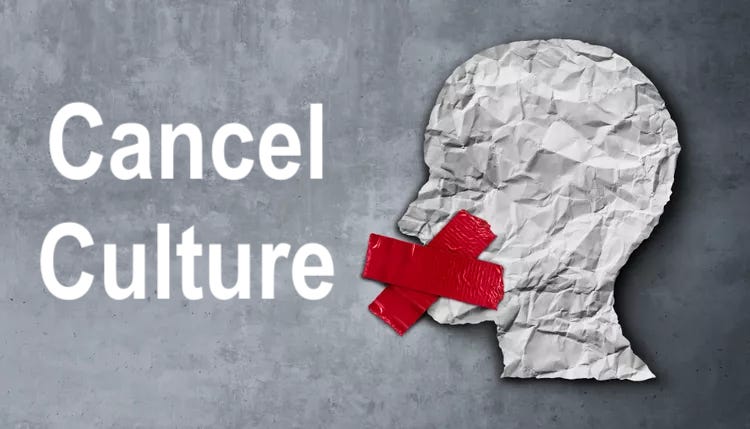GUEST COMMENTARY: Cancel Culture, Left and Right
"The key difference (between the Right and the Left) is whether you are stepping on those below or tugging annoyingly on the tuxedo tails of those above."
By Bob Brecha
Special to Tropic Press
I have continually struggled with how to respond to statements made by Donald Trump and his followers because they often take an issue with some small grain of truth and then blow it up into a national emergency, against which they can then take authoritarian measures.
One case in point is that of cancel-culture and limitations to free speech.
We often hear that the so-called “Left” is just as guilty of violations of free speech as those currently perpetrated by the Trumpian Right. One of my daughters, in another context, provided me with a way of thinking about this that I find convincing. I do believe that there were some excesses on university campuses and elsewhere in society that led to unnecessary limitations on freedom of expression by Progressives. However, I believe that an important framing is to ask, “What are the relevant power relationships of those being limited and doing the limiting of speech?”
The general tenor of the “cancel culture” over the past decade is that of pointing out speech and behavior that had long been used by a dominant (white, male) societal structure to belittle and disadvantage those who were in lesser positions of power or societal standing.
“We aren’t allowed to make any jokes anymore,” complain those who were accustomed to making sexist, racist, homophobic or xenophobic remarks. Of course, such speech is protected in the United States under the First Amendment, but that doesn’t make it right or imply that insults should be allowed to pass uncommented. Those traditionally in power have not enjoyed being called out for speech that harms, directly or indirectly, others who may be less advantaged.
The key difference with respect to the current administration’s illiberal stances is that followers of Trump demand that there should be penalties (limits to free speech) for those who criticize persons in power or who have “higher” societal standing.
Trump is the most thin-skinned public figure we have ever seen, but his acolytes have taken on this stance of denying First Amendment rights quite explicitly, through threats in the form of deportation, jail, cutting funds, denying visas, and so much more. They are aggrieved when their machinations are exposed and promise to use all the power of the state to suppress criticism by those “below.”
In the political sphere, whether you agree with them in general or not, I think it is clear that a populist like Bernie Sanders and one like Donald Trump differ in their approaches in that Sanders says, “Let’s call to account those who are most powerful and do more for those who are less fortunate,” whereas Trump says, “Let’s blame those who are least fortunate, punish them, and see how we on top can profit most.”
The key difference is whether you are stepping on those below or tugging annoyingly on the tuxedo tails of those above.
In spite of some excesses by Progressives in not wanting to hear uncomfortable ideas, there is a fundamental difference today in who is cancelling whom in terms of relative power relations.
University students protesting an inconvenient speaker should be condemned; but those actions pale in comparison to kidnapping and imprisoning those who exercise the right of free speech.
It is disingenuous and ultimately dangerous to democracy to claim a moral equivalence between state-imposed limits to criticism of power, and the defense of the less-powerful against those speaking from a place of relative privilege.
Bob Brecha is a native of Ohio, retired professor of sustainability, renewable energy and physics (University of Dayton), and long-term newspaper junkie (print and electronic). He consults on energy systems and climate change policies, based in Berlin, Germany. When not fretting about the state of the world and the global climate emergency, he enjoys hiking, biking and reading as much as possible.



